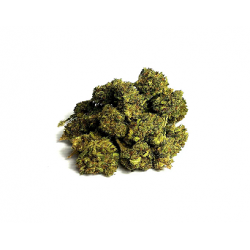
The results of a new study examining human and canine brain tumor cells suggest that cannabidiol may be a useful therapy for a difficult-to-treat brain tumor. Cannabidiol or CBD is a non-psychoactive chemical compound made from marijuana. The study looked at glioblastoma, an often fatal form of brain tumor that grows and spreads very quickly.
Early research suggests that CBD may help fight brain cancer
Researchers studying dog and human cell culture have found that cannabidiol is effective in fighting glioblastoma.
Bethesda, MD - The results of a new study of human and canine brain tumor cells suggest that cannabidiol may be a useful therapy for a difficult-to-treat brain tumor. Cannabidiol or CBD is a non-psychoactive chemical compound made from marijuana.
The study looked at glioblastoma, an often fatal form of brain tumor that grows and spreads very quickly. Despite significant advances in treatment, cancer survival has not improved significantly.
“There is an urgent need for further research and treatment for brain cancer patients,” said Chase Gross, a graduate / graduate in veterinary medicine from Colorado State University. "Our work demonstrates that CBD offers an effective, synergistic therapeutic option for the treatment of glioblastoma, and this requires further research."
Mr. Gross is expected to present at the annual meeting of the American Society for Pharmacology and Experimental Therapy in San Diego. Although the meeting was canceled in response to the COVID-19 outbreak at the 2020 Experimental Biology Conference, a summary of the research team appeared in the April 2020 issue of the FASEB Journal.
Mr. Gross and colleagues examined human and canine glioblastoma cells because the cancer shows surprising similarities between the two species. The CBD isolate containing 100% CBD and the CBD extract contained small amounts of other naturally occurring compounds such as cannabigerol and tetrahydrocannabinol or THC.
“Our experiments have shown that CBD slows the growth of cancer cells and is toxic to both canine and human glioblastoma cell lines,” Gross said. "Importantly, the differences in anticancer effects between the CBD isolate and the extract are negligible."
New work has shown that the toxic effects of CBD are mediated through the natural pathway of cell apoptosis, a form of programmed cell death. The researchers also observed that CBD-induced cell death was characterized by large, swollen intracellular vesicles before the membrane began to bulge and disintegrate. This was true for all cell lines tested.
The researchers believe that CBD’s anti-cancer activities target mitochondria, the energy-producing structures of the cell, by deactivating mitochondria and releasing harmful reactive oxygen species. Their experiments showed that CBD-treated cells showed a significant decrease in mitochondrial activity.
“CBD has been extensively studied in cells over the past decade because of its anti-cancer properties,” Gross said. "Our study will help solve the in vitro mystery and allow us to study the effects of CBD on glioblastoma in clinical settings using live animal models. This could lead to new treatments that could affect both humans and dogs. Help with very severe cancer."
The researchers then plan to move from cell cultures to animal models to test the effect of CBD on glioblastoma. If animal experiments are successful, work at the Colorado State University Veterinary Education Hospital could shift to a clinical trial of dogs treated for natural glioblastoma.

facts
Early research suggests that CBD may help fight brain cancer
"Our experiments have shown that CBD slows the growth of cancer cells and is toxic to both canine and human glioblastoma cell lines."
"Our work demonstrates that CBD has the potential to provide an effective, synergistic therapeutic option for glioblastoma, and this needs further research."




















